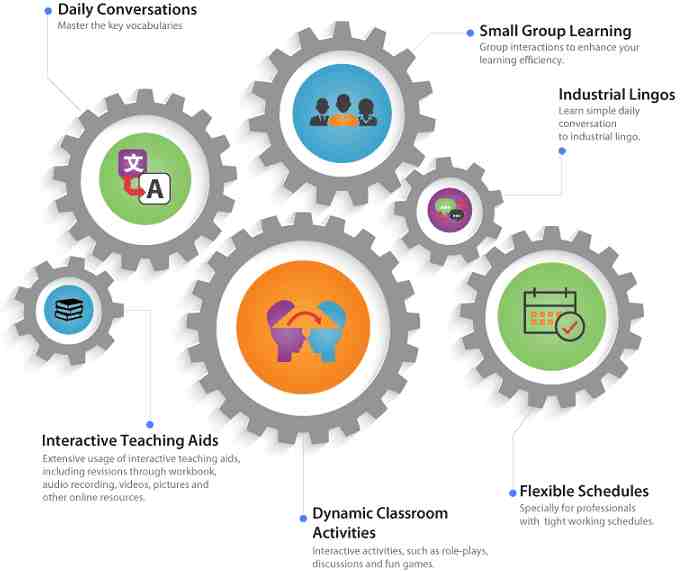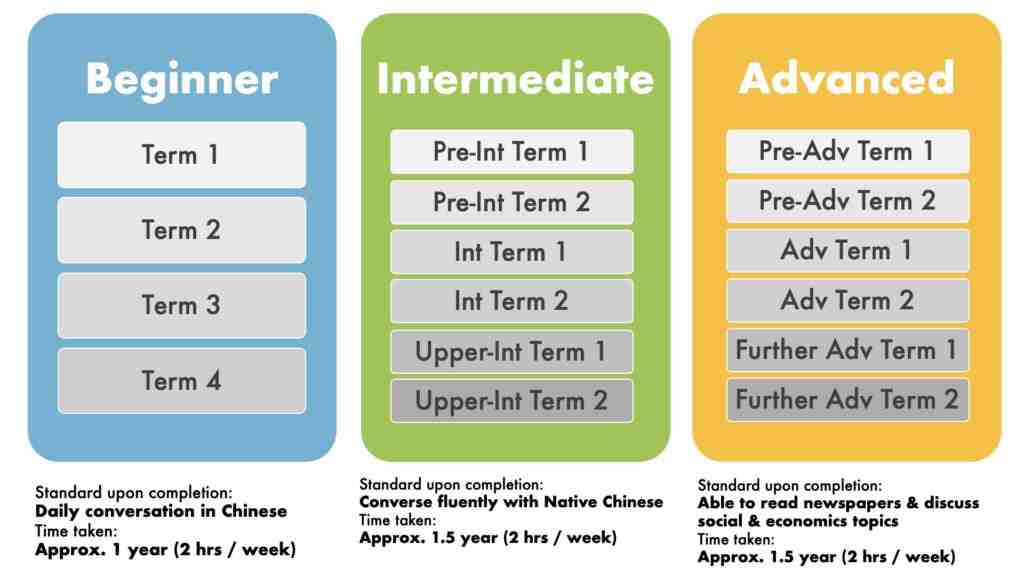Avoid These Common Mistakes in Business Mandarin that Even Advanced Learners Do
Avoid These Common Mistakes in Business Mandarin that Even Advanced Learners Do

Common Mistakes in Speaking Business Mandarin

Mistakes in speaking business Mandarin are most likely to happen due to the nature of verbal communication. Unlike writing, you cannot pause to revise your sentences and grammar. Hence, making mistakes in speaking is inevitable, even for advanced learners. Here are a few common mistakes in speaking Business Mandarin that you should pay attention to.
Ignoring Tones
Mandarin differs greatly from other languages due to the use of tones to distinguish words from one another. For example the word 买 (mǎi = buy) and 卖 (mài = sell) is similar in terms of Pinyin writing, the only difference being the tone. Given how many Mandarin vocabularies have the exact same alphabetical writing, mastering tones becomes utterly important to avoid misunderstandings when speaking with other people. As a reference, this is how to differentiate and use each tone correctly.
- The first tone is usually represented with a straight horizontal line. To pronounce this tone, you need to keep your voice high and flat, almost monotonous.
- The second tone is usually represented by a rising line. To pronounce this tone correctly, you need to raise your voice as you speak, similar to how you will ask a question to others.
- The third tone combines both the second and the fourth tones. To pronounce this tone correctly, you should start with a falling tone and end with a rising tone.
- The fourth tone is usually represented by a lowering line. To pronounce this tone correctly, you need to begin with a higher tone and sharply drop it soon after.
- The neutral tone is usually represented with ordinary vowels which imply that you can just pronounce the syllables normally with a slightly quicker and lighter tone than others.
Mixing with Informal Speech
Business Mandarin is often used in professional settings, such as business meetings, negotiations with others, and interaction with potential business partners. Given how this type of Mandarin is typically used in formal settings, some vocabulary and sentence structure might differ from casual Mandarin that you use in informal settings. Learn more about how to differentiate this speech pattern by checking this article.
Directly Translates from English
If you’re not a native Mandarin speaker, being able to speak fluently might take a while. A common incorrect practice for non-native speakers is usually related to how they attempt to translate sentences directly from English into business Mandarin. Directly translating sentences can cause misunderstandings since Mandarin sentence structures might be different from English. Therefore, it is important to learn how to structure sentences properly.
Mastering Business Mandarin as a Busy Professional: Duration and Priority

Time is a very sensitive aspect when you’re working as a busy professional. Given how tight one’s schedule can be, setting Business Mandarin as a top priority is probably out of reach. However, the ability of communicating in Business Mandarin undeniably still serves as a valuable asset for a longer term. To be able to allocate time effectively to learn Business Mandarin, knowing an estimation of the duration needed to master the language can help busy professionals form a better learning structure in the future. Ideally, learning business Mandarin for work purposes can take up to 1-2 years of constant learning. Even so, it is important to note that the duration needed to learn business Mandarin can differ greatly depending on the following factors.
Intensity
Study intensity is an important factor in learning business Mandarin. As a busy professional, this intensity can differ greatly among one another. There are people who can only dedicate 1-2 hours per week to learn business Mandarin, while others might be able to learn everyday due to their more flexible schedule.
Business Sectors
Learning business Mandarin is rather different from learning Mandarin in general. Business Mandarin is often filled with technical terms that require more focus and learning. Therefore, busy professionals that wish to master business Mandarin are often recommended to learn based on the sectors they are in. For example, professionals that work in the financial sector most likely will not need to learn about business Mandarin in hospitality. With the varying sectors, working professionals’ time to learn Mandarin will also be distinct between one another.
Priority
Business Mandarin usually consists of different units to learn, such as writing, reading, and speaking. Your main focus will decide on how long it will take to learn business Mandarin. For example, working professionals who prioritize business Mandarin conversations will usually have a shorter learning period than those who wish to read and write. This is due to the nature of reading and writing that also require business professionals to learn about Chinese characters.
Resources
Available resources are another important factor in learning business Mandarin. Although learning business Mandarin by relying on free resources on the internet is plausible, busy professionals have to acknowledge that these resources are often very limited and can hinder effectiveness, especially if you’re working on a tight schedule. To start finding the best resources to begin learning business Mandarin phrases, check out this article.
Common Mistakes in Writing Business Emails

If you’re working as a professional in a company, writing business emails is another common activity that you need to finish. Business emails in Mandarin are often very structured and written in a respective tone. Here are some common mistakes in writing business emails in Mandarin that you might make as a working professional.
Ignoring Structure
Business emails have a dedicated structure to help recipients scan for the essential information. A good business email starter should be started with greetings and ended with a proper signing off accompanied by the sender’s signature. Adhering to this compelling structure will not only help clear misunderstandings, but also to exhibit your professionalism in handling emails correctly.
Forget Subjects
Subject is an essential part of a business email. Although seemingly simple, this single line carried the basic idea of what will be discussed in the body content. Providing a subject will help the recipient to understand your objectives quickly.
Signing Off
The last line consisting of signing off is often deemed unimportant by people. However, properly signing off is considered to be an act of respect and should be included along with your signature. The most commonly used phrase for signing off is 此致敬礼 which can be translated as best regards. This phrase is often slightly misused during email writing. The ideal way to write this signing of message is by putting the first two Chinese characters (此致) on the first line and putting the rest of the characters (敬礼) on the second line.
Contact Information
Providing contact information is utterly important. A clear source will help increase credibility with your recipients. Aside from establishing trust between one another, contact information will also help the other party to get back to you on another date.
Learn more on how to properly arrange and write business emails in Mandarin.
Common Mistakes in Implementing Business Mandarin for Work

After having a good foundation in Business Mandarin, it is common for you to start applying your learnings to working environments. If you have just started applying your learning result to a more professional setting, here are a few common mistakes that you need to be aware of.
Relying on Textbooks
Textbooks are one of the sources that you can utilize in learning business Mandarin. Learning Mandarin through textbooks will provide a solid foundation and is highly suitable for improving vocabulary acquisition. However, it is also important to know that communication in actual business settings is not as rigid as textbooks. Therefore, you might encounter difficulty if you rely solely on textbooks.
Overcomplicating Communications
Another mistake that can be easily done, even by experienced learners, is overcomplicating communication. This can happen in an attempt to showcase one’s skills. Overcomplicating sentences to show off your ability can lead to misunderstandings that hinder your work. Therefore, make sure you’re using clear sentences when communicating with business Mandarin.
Neglecting Titles and Hierarchy
Respect is important when it comes to communicating with business Mandarin. A good way of practice is by addressing people with their respective titles and names. Forgetting how to address people properly, on the other hand, is solid evidence of unprofessionalism.
Understand more about how to apply business etiquette to show respect by checking out this article.
How to Make Fewer Mistakes in Business Mandarin
As mentioned above, mistakes are common to happen when you’re utilizing business Mandarin as your second language. These errors can lead to misunderstandings that hinder your overall business performance. Therefore, the ability to notice and correct mistakes are important to promote smoother communication. Here’s a few practical ways on how to notice and make fewer mistakes in business Mandarin.
Discover Your Own Weakness
Business Mandarin covers a lot of fields such as reading, writing, speaking, and active listening. If you find difficulties in applying business Mandarin flawlessly, you can start by assessing your ability in each skillset. After discovering your major weaknesses, you can try focusing your time and effort more in that part to improve your understanding in business Mandarin.
Track Your Mistakes
Keeping a note on your mistakes is another great practice to implement. Noting down your mistakes will not only help you in noticing your error patterns, but will also motivate you to avoid repeating the same thing.
Learn from Native Speakers
One major problem that working professionals experience is relying too much on a textbook or other written material. Although this learning method can help build a stronger foundation, it is highly recommended to find other people that can help you improve your business Mandarin. Native speakers can easily become a reliable training partner that can also help you realise and correct mistakes. Furthermore, you can also consult to native speakers to help with sentence structures and grammar.







